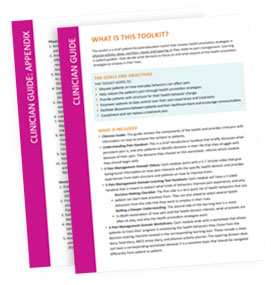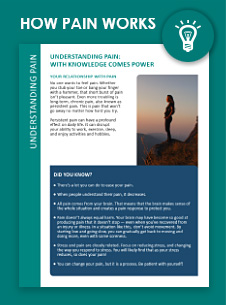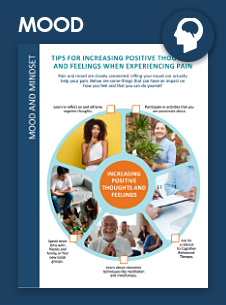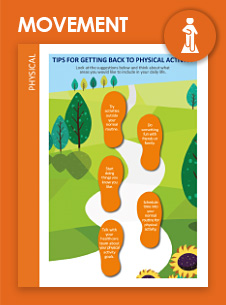Pain Education Handouts

Clinician Tools
- Clinician’s Guide: Patient education on pain in one concise document.
- References and Resources: Reference information from the Pain Education Toolkit.
Patient Education Videos
Why does activity help with pain?
You may be worried that physical activity will make your pain worse, but movement can lessen your pain. Physical activity helps ease muscle stiffness and improves your mobility. It can also help control your weight, lift your mood, and help you sleep better.
How do mood and thoughts affect pain?
Positivity is incredibly important in managing your pain. Positive thinking can help reduce negative feelings, pain, stress, and increase your motivation to make healthy choices.
How can food affect your pain?
Eating healthy and nutritious food is important for many reasons. A big benefit is that food can increase your energy levels. If you have more energy, you can make changes in other areas like sleep, physical activity, and your mood and mindset.
Why does sleep affect pain?
Getting restful sleep can make you feel energized, more active, more social, and reduce your cravings for unhealthy foods. Any of those improvements can help reduce your pain.
Why I should think about reducing my pain medication?
Reducing your pain medications may be the safest option for your pain management if:
• Your pain isn’t getting much better even with more pain medication.
• The medication’s side effects make it hard to function normally every day.
• You are prescribed both opioids and other high-risk medications like benzodiazepines.
• You have other health risks such as sleep apnea, pulmonary or lung disease, liver disease, renal disease, a tendency to fall, or you are over 65.












